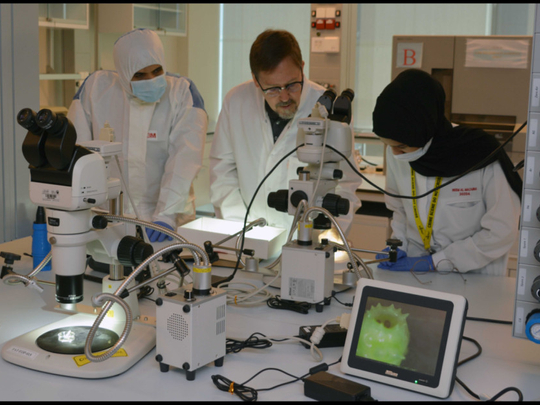
Dubai: The science of solving crimes can take investigators to grim and unpleasant places, as Dubai’s forensics experts will extract information from bugs, beetles and insects found on dead bodies to solve some of the darkest crimes.
Lieutenant Colonel Ahmad Mattar Al Muhairi, Acting Director of Forensic Sciences and Criminology Department at Dubai Police, said the Forensic Entomology Department would help investigations by studying the bugs’ life cycle inside and outside dead bodies.
“Forensic entomology is a new branch in forensic investigation. It uses insects and arthropods that are found on decomposing bodies to aid legal investigations,” Al Muhairi said.
The Dubai Police are putting a team to specialise in this area of forensic investigation.
He said bugs will help in determining time and cause of death in decomposing bodies.
In a lecture held at the Forensic Sciences and Criminology Department for group of experts, Dr Jeffry Wales, a professor at Florida University and expert in forensic entomology, explained the methods that a forensic expert should take during examination of bodies.
“It is the first training session for 22 forensic experts at Dubai Police to know more about insects and how it can help in solving case of murder. We can study the life cycle of different insects to get details about murder’s timing, place of crime and if it happened at day or night,” Lt Col Al Muhairi added.
He said the insects should be collected at the crime scene, before the transfer of the body.
Dr Fouad Tarbih, senior forensic science expert at Dubai Police, said they carried out experiments on animals’ cadavers under different weather conditions.
Professor Jeffry spoke about some crimes solved in the US by using forensic entomology, which helped arrest the suspects.
“Insects exist on the body and around it and must be collected and studied. There are some types of insects which invade the body in early stages of death and others later,” Dr Jeffry said.












